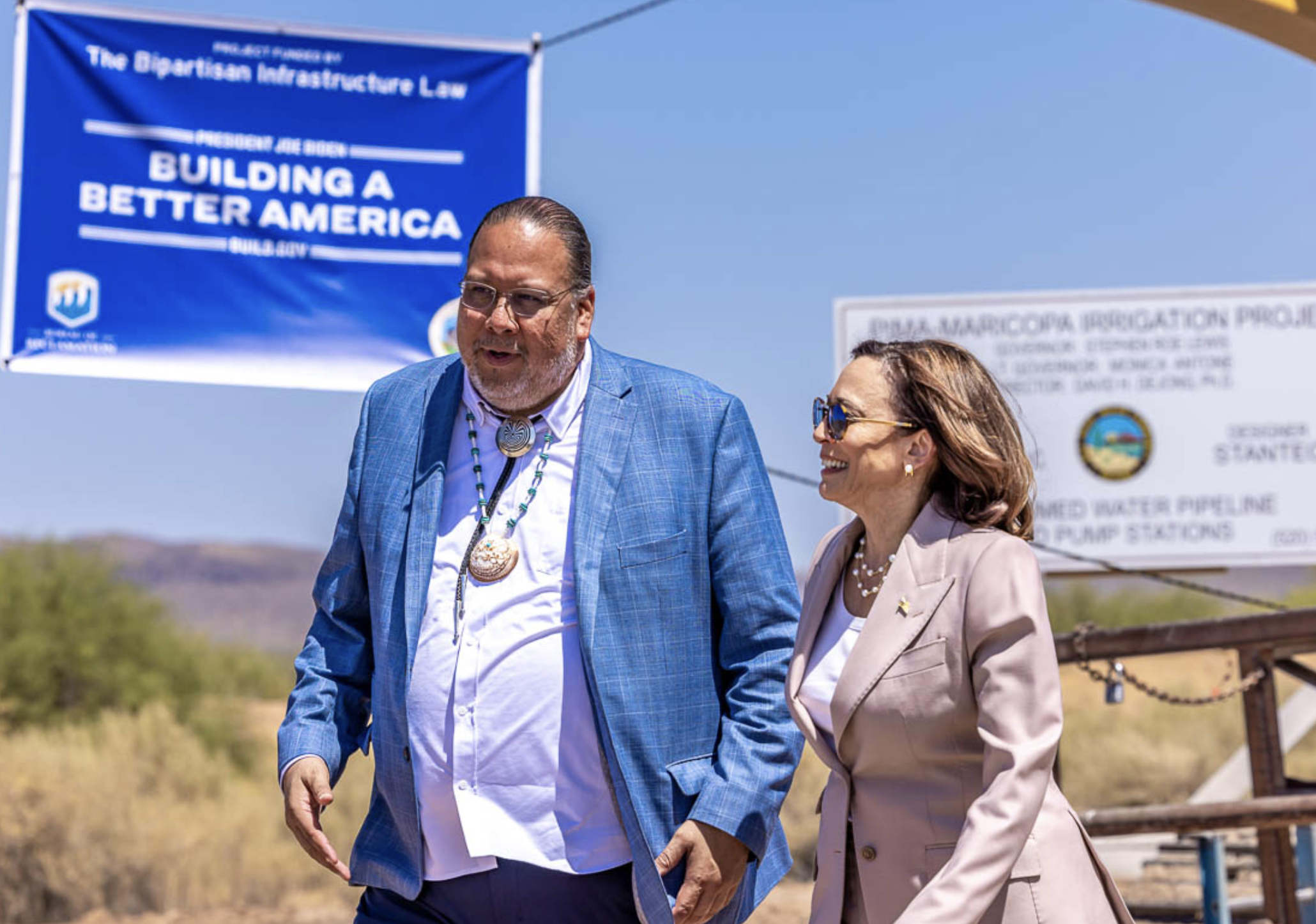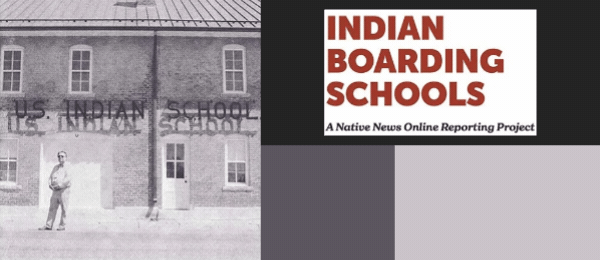
- Details
- By Neely Bardwell
Vice President Kamala Harris released a statement in response to the President Joe Biden's apology for Indian boarding school atrocities:
“For generations, Native children were torn from their families and their communities, forced to change their names and cut their hair, forbidden to speak their language or practice their religion. In boarding schools, many Native children endured horrific physical, emotional, and sexual abuse. These acts were not only a violation of basic human rights but also an attack on the very existence of Tribal Nations. During our Administration, we have created the first official list of boarding schools that received federal support; we have identified dozens of marked and unmarked graves associated with those schools; and we have launched an oral history project to collect the stories of the survivors, many of whom are now the elders, to create a permanent record of these abuses so they can never be denied, All Americans have a right to learn our nation’s full history to ensure we will be a better nation for each generation to come."
President Biden’s apology comes as the first of eight recommendations made in the Federal Indian Boarding School Investigative Report, Volume II, released by the Interior Department in June 2024.
Native children at these schools endured physical, emotional, and sexual abuse, and, as detailed in the Investigative Report by the Department of the Interior (DOI), at least 973 children died in these schools. Some believe this number may be higher.
The federally-run Indian boarding school system was designed to assimilate Native Americans by destroying Native culture, language, and identity through harsh militaristic and assimilation methods.
Earlier this month, Vice President Harris met with Indigenous youth leaders in Arizona.
In July 2023, the Vice President made history by visiting the Gila River Indian Community, becoming the first sitting President or Vice President to do so. During her visit, she emphasized the Biden-Harris Administration's commitment to Tribal Nations and Native communities. She also received an update on the Gila River Indian Community’s Reclaimed Water Pipeline Project, a water infrastructure initiative funded by the Bipartisan Infrastructure Law that aims to provide reliable access to clean water and reduce reliance on the Colorado River.
In November 2022, at the White House Tribal Nations Summit, the Vice President discussed the Administration's collaboration with Tribal leaders to enhance maternal health, improve access to capital, combat the climate crisis, and uphold the Indian Child Welfare Act.
Maternal Health: Native women face more than twice the risk of pregnancy-related fatalities. Vice President Harris has prioritized this crisis on the White House agenda, leading the first-ever maternal health meeting with Cabinet Secretaries and agency leaders. Her initiatives have generated significant commitments from both public and private sectors to address maternal health and the systemic inequities impacting Black, Native American, and rural women.
Access to Capital for Small Businesses: Native Americans are over three times more likely to lack access to traditional financial services. After securing over $12 billion in investments for community lenders during her Senate tenure, Vice President Harris has worked to implement this funding, encouraging lenders to foster inclusive entrepreneurship and develop high-opportunity communities. This effort has resulted in substantial investments in CDFIs that support Native-owned businesses.
Addressing the Climate Crisis: Before the passage of the Bipartisan Infrastructure Law and the Inflation Reduction Act, Vice President Harris advocated for investments crucial to Indian Country, focusing on climate resilience and water infrastructure. She continues to be a key advocate for these investments, promoting their potential for job creation and economic opportunity through various initiatives, including groundbreaking events and discussions at the White House.
Voting Rights: In July 2021, the Vice President gathered Native American and Alaska Native leaders to discuss voting rights as part of her ongoing efforts to protect access to the ballot. In March 2022, she marked the one-year anniversary of the Executive Order on Promoting Access to Voting by highlighting the Administration's achievements and releasing a report on Native American voting rights.
Access to Affordable Internet: Vice President Harris has consistently championed affordable internet access. In August 2022, she announced $146 million in awards through the Tribal Broadband Connectivity Program and an additional $1 billion in funding during a press call with Tribal media outlets.
More Stories Like This
Native News Weekly (August 25, 2024): D.C. BriefsZuni Youth Enrichment Project Announces Family Engagement Night and Spring Break Youth Programming
Next on Native Bidaské: Leonard Peltier Reflects on His First Year After Prison
Deb Haaland Rolls Out Affordability Agenda in Albuquerque
Boys & Girls Clubs and BIE MOU Signing at National Days of Advocacy
Help us defend tribal sovereignty.
At Native News Online, our mission is rooted in telling the stories that strengthen sovereignty and uplift Indigenous voices — not just at year’s end, but every single day.
Because of your generosity last year, we were able to keep our reporters on the ground in tribal communities, at national gatherings and in the halls of Congress — covering the issues that matter most to Indian Country: sovereignty, culture, education, health and economic opportunity.
That support sustained us through a tough year in 2025. Now, as we look to the year ahead, we need your help right now to ensure warrior journalism remains strong — reporting that defends tribal sovereignty, amplifies Native truth, and holds power accountable.
 The stakes couldn't be higher. Your support keeps Native voices heard, Native stories told and Native sovereignty defended.
The stakes couldn't be higher. Your support keeps Native voices heard, Native stories told and Native sovereignty defended.
Stand with Warrior Journalism today.
Levi Rickert (Potawatomi), Editor & Publisher


